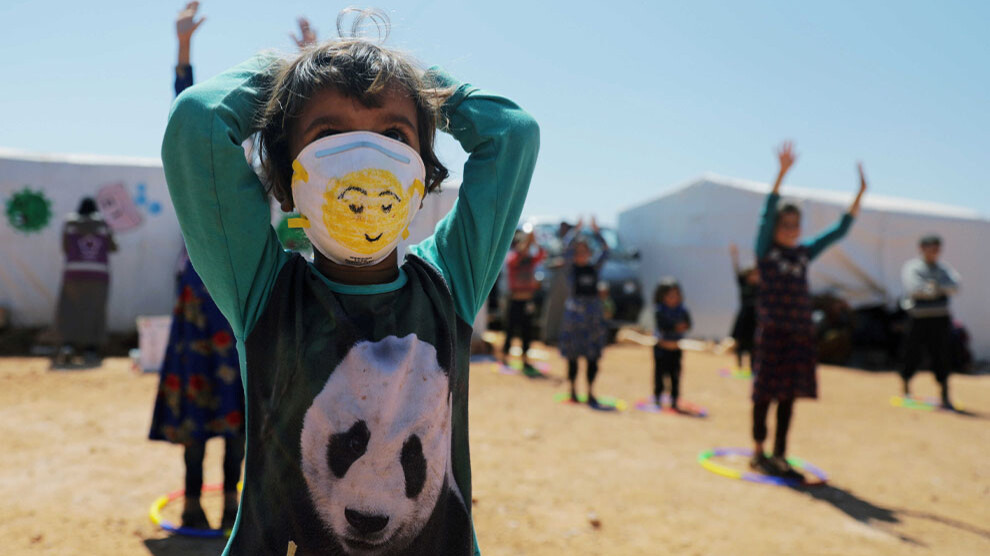New partial lockdown against pandemic in North-East Syria
In order to get a grip on the resurgent Corona numbers in northern and eastern Syria, the crisis staff of the autonomous administration has ordered another partial shutdown.
In order to get a grip on the resurgent Corona numbers in northern and eastern Syria, the crisis staff of the autonomous administration has ordered another partial shutdown.

In order to get a grip on the resurgent numbers of Coronavirus infections in northern and eastern Syria, the crisis team of the autonomous administration has ordered another partial shutdown. The measure begins next Tuesday and includes the closure of all schools, institutions, places of worship, markets, industrial stores, stadiums, restaurants and private practices. Curfews will apply from 5 p.m. to 8 a.m. Pharmacies and bakeries are exempt from the ban, and grocery stores are also allowed to open, although only at certain times. Workers in agriculture are still allowed to go to work. However, employers must ensure that clearance rules are followed. While border crossings will be closed during the lockdown, only emergency and supply shipments and ambulance travel will be exempt. Local government offices will also remain closed.
Restrictions to remain in place until April 22
The restrictions are not expected to be lifted until April 22 at the earliest, according to a decree issued Sunday. If the partial lockdown against third Corona wave fails to take effect, the autonomous administration reserves the right to introduce a hard lockdown. There is still a chance to avert such a development in northern and eastern Syria. However, this would require the support of as many people as possible. In addition, a strict mask requirement continues to apply. Violations could result in heavy fines.
Regional lockdown also extended
In the regions of Heseke, Qamishlo and Raqqa, a curfew has already been in place since last Tuesday, which is being extended with the new measure. In Derik, a curfew has already been in place since November and has been renewed every 14 days. A partial curfew had also been regularly imposed in the rest of the autonomous regions of northern and eastern Syria in recent months.
422 deaths
In the autonomous areas in northeastern Syria, 12,236 infections with the coronavirus have been detected so far, and 422 infected people have died. 1,365 people are considered to have recovered. Meanwhile, the World Health Organization (WHO) vaccination campaign against the pandemic, scheduled for March, has still not begun, as there is still no vaccine in northern and eastern Syria.